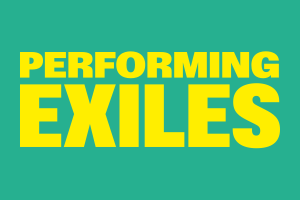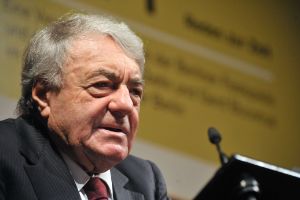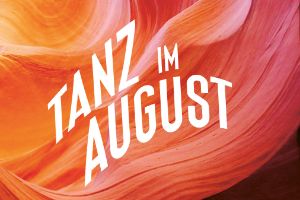
Lecture
Claude Lanzmann
Berlin 1948 to 2008. From the Blockade to Reunification
Geology and Genealogy of the Capital
A lecture by the film director
Introduction: Manfred Lahnstein

Claude Lanzmann © David Ausserhofer
In 1984 German Chancellor Helmut Kohl spoke of the blessing of being born too late to have been implicated in Nazi crimes. A year later, as Kohl’s phrase was gaining currency in Germany, a project was coming to fruition in France and Poland that was to decisively change the way people thought about the Holocaust. Claude Lanzmann, a child of Jewish immigrants from eastern Europe, had spent the past 11 years carrying out interviews with Holocaust victims in Poland – some of whom were speaking about the subject for the first time. Lanzmann also talked to perpetrators and accessories to the crimes. The result was Shoah, a nine-hour long documentary film that recorded for posterity what victims and perpetrators had to say 40 years later. Shoah also preserves moments when memory fails and language dries up, but the camera images remain: an expression of irrefutable, inconsolable mourning. In Lanzmann’s words, this is “a film about death, not about surviving. Not a single survivor appears in the film. At best, they are revenants, who – practically in the hereafter – were already hovering above the floor of the crematorium, but then returned. These people never say ‘I’. They don’t tell their own story. They say ‘we’ because they are also speaking on behalf of the dead.”
Lanzmann has not only addressed “the dead”, but has always been active in contemporary politics “for the living”. He was born in Paris in 1925, was involved in the anti-colonial movement and filmed several films about contemporary Israel. He studied philosophy in Tübingen and for many years was a friend of Simone de Beauvoir and Jean-Paul Sartre. He is also the director of the political, literary and philosophical magazine Les Temps Modernes.
